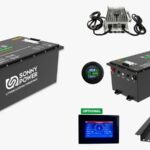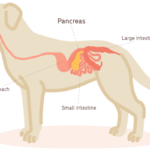Attention Deficit Hyperactivity Disorder (ADHD) is a condition that affects millions of people worldwide, and its impact extends beyond just difficulty with attention. One significant challenge faced by those with ADHD is impaired executive functioning. Executive functions are a set of cognitive processes that include planning, organization, impulse control, and working memory. Improving these skills can significantly enhance daily functioning and overall quality of life. Here’s a comprehensive guide on how to improve executive functioning when you have ADHD.
Understanding Executive Functioning
Executive functioning encompasses several critical cognitive abilities:
The ability to set goals, create plans, and organize tasks.
The capacity to hold and manipulate information over short periods.
The ability to resist immediate temptations and delay gratification.
The capacity to start tasks promptly without undue procrastination.
The ability to adapt to new situations and adjust plans as needed.
Managing emotions in a way that allows for productive behavior.
People with effects of ADHD often struggle with these areas, making everyday tasks and responsibilities more challenging. However, there are strategies and tools that can help improve these functions.
Strategies to Improve Executive Functioning
1. Create Structured Routines
Establishing consistent routines can help mitigate the effects of disorganization and forgetfulness. Creating a daily schedule and sticking to it can make tasks feel more manageable and less overwhelming. Use visual aids like calendars, planners, or apps to track your routines and appointments. Setting regular times for tasks like meal preparation, exercise, and relaxation can create predictability and reduce stress.
2. Break Tasks into Manageable Steps
Large projects can seem daunting and may lead to procrastination. Break down tasks into smaller, more manageable steps. This approach makes the task less overwhelming and provides a clear path to completion. For example, if you need to write a report, break it down into researching, outlining, drafting, and editing stages.
3. Use Reminders and Alerts
Utilize technology to your advantage by setting up reminders and alerts on your phone or computer. Calendar apps, task management tools, and reminder apps can help you keep track of deadlines and appointments. Visual and auditory reminders can serve as prompts to help you stay on track.
4. Implement Organizational Tools
Invest in organizational tools that can help you manage your time and tasks effectively. Consider using:
Keep daily or weekly to-do lists to prioritize tasks and track progress.
Use timers to allocate specific periods for tasks and breaks.
Create checklists for repetitive tasks to ensure nothing is overlooked.
5. Practice Mindfulness and Stress Reduction
Mindfulness practices can improve focus and emotional regulation. Techniques such as meditation, deep breathing exercises, and progressive muscle relaxation can help reduce stress and improve concentration. By fostering a calm and focused state of mind, mindfulness can enhance your ability to manage tasks and regulate emotions.
6. Seek Professional Help
Working with a mental health professional or ADHD coach can provide personalized strategies and support. Cognitive-behavioral therapy (CBT) and coaching can help develop practical skills for managing ADHD symptoms. Professionals can also offer guidance on implementing strategies tailored to your specific needs.
7. Develop Coping Strategies
Developing coping strategies can help manage impulsivity and emotional responses. Techniques such as pausing before responding, practicing self-compassion, and identifying triggers can help improve impulse control and emotional regulation. Journaling and self-reflection can also aid in recognizing patterns and finding effective solutions.
8. Create a Supportive Environment
A supportive environment can make a significant difference in managing ADHD. Surround yourself with people who understand your challenges and can offer encouragement. Additionally, organizing your physical space to minimize distractions can improve focus and efficiency. Keep your workspace tidy and free from unnecessary clutter.
9. Enhance Working Memory
Working memory can be improved through various exercises and tools:
Engage in activities that challenge your memory, such as puzzles or memory games.
Regularly review information to reinforce learning and retention.
Use visual aids, like diagrams or mind maps, to help remember and organize information.
10. Set Realistic Goals
Setting realistic and achievable goals can provide direction and motivation. Break long-term goals into smaller, short-term objectives, and celebrate each achievement. Ensure your goals are specific, measurable, attainable, relevant, and time-bound (SMART).
11. Maintain a Balanced Lifestyle
A healthy lifestyle supports cognitive function and overall well-being. Regular physical activity, a balanced diet, and adequate sleep are crucial for maintaining focus and managing ADHD symptoms. Incorporate exercise into your routine, eat nutritious meals, and establish a consistent sleep schedule.
12. Utilize ADHD-Friendly Apps
Several apps are designed specifically for individuals with symptoms of ADHD. These apps can assist with organization, time management, and focus. Explore options such as task managers, habit trackers, and focus-enhancing apps to find tools that work best for you.
Conclusion
Improving executive functioning when you have ADHD is a multifaceted process that involves developing practical strategies, utilizing supportive tools, and fostering a positive environment. By implementing structured routines, breaking tasks into manageable steps, using reminders, and seeking professional support, you can enhance your executive functions and improve your daily life. Remember, progress takes time, and finding the right strategies for your unique needs may require some experimentation. With persistence and the right support, you can manage ADHD more effectively and lead a fulfilling life.
Feel free to submit more guest posts through Links Building Servcies - Best Prices. Buy Author Account / 1$ Guest Post Here



















